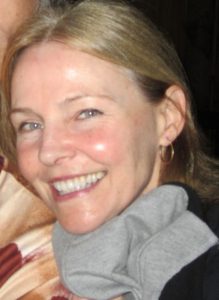 Tracy Adams
Tracy Adams
Tracy Adams received a Ph.D. in French from Johns Hopkins University in Baltimore, Maryland, in 1998. Associate Professor in European Languages and Literatures at the University of Auckland, New Zealand, she has also taught at the University of Maryland, the University of Miami, and the University of Lyon III. She was a Eurias Senior Fellow at the Netherlands Institute for Advanced Studies 2011-2012, an Australian Research Council Centre of Excellence in the History of Emotions Distinguished International Visiting Fellow in 2014 and a fellow at the Herzog August Bibliothek fellowship in Wolfenbüttel, Germany, in 2016. She is the author of Violent Passions: Managing Love in the Old French Verse Romance (Palgrave Macmillan, 2005), The Life and Afterlife of Isabeau of Bavaria (The Johns Hopkins University Press, 2010), and Christine de Pizan and the Fight for France (Penn State University Press, 2014). With Christine Adams, she has just edited Female Beauty Systems: Beauty as Social Capital in Western Europe and the US, Middle Ages to the Present (Cambridge: Cambridge Scholars Publishing, 2015). Also with Christine Adams, she is completing the Creation of the French Royal Mistress, scheduled to appear in 2017.
Back to top of page
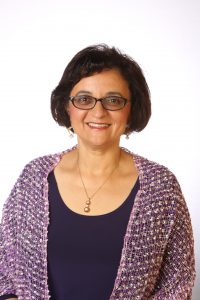 Sahar Amer
Sahar Amer
Sahar Amer (Ph.D, Yale University) is Professor and Chair of the Department of Arabic Language and Cultures at the University of Sydney. Her research focuses on gender and sexuality in Arab and Muslim societies, on comparative, cross-cultural relations between Arab Muslim societies and the West, and on postcolonial identities. She is especially interested in the notion of borders (cultural, linguistic, historical and geographic), not as elements of separation and division, but rather as fluid spaces of cultural exchange, adaptation and collaboration. She is the author of What Is Veiling? (2014); Crossing Borders: Love between Women in Medieval French and Arabic Literatures (University of Pennsylvania Press, 2008), winner of the 2009 Aldo & Jeanne Scaglione Prize for Comparative Literary Studies by the Modern Languages Association of America, and A Feminine Esope: Marie de France and the Politics of Interculturality (Rodopi Press, 1999).
Back to top of page
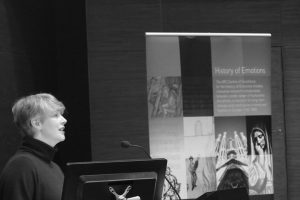
Susan Broomhall
Susan Broomhall leads the Gender and Women’s History Research Centre in the Institute for Humanities and Social Sciences at the Australian Catholic University. Her current research includes women’s activities and the role of gender ideologies in shaping experiences in the Dutch East India Company; the role of gender ideologies in early modern natural resource management regarding forests and waterways in particular; and women’s participation in agricultural innovations from the early modern period to modern Australia.
Back to top of page

Megan Cassidy-Welch
Megan Cassidy-Welch is the Program Leader for Medieval and Early Modern Studies at the Australian Catholic University. Her expertise is in thirteenth-century European history, especially social and cultural histories of space, memory, and most recently violence. Her most recent book is The Crusades and Medieval Violence (Amsterdam University Press, 2022). Other books include Monastic Spaces and their Meanings: Thirteenth-century English Cistercian Monasteries (2001), and Imprisonment in the Medieval Religious Imagination (2011), and War and Memory at the time of the Fifth Crusade (Penn State UP, 2019).
Back to top of page
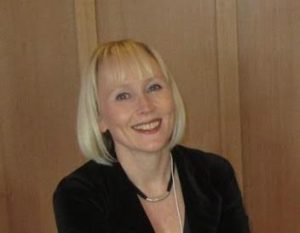
Louise D’Arcens
Louise D’Arcens is Professor in the Department of English at Macquarie University, and holds an Australian Research Council Future Fellowship. Her publications include the books Old Songs in the Timeless Land: Medievalism in Australian Literature 1840-1910 (2011) Comic Medievalism: Laughing at the Middle Ages (2014) and the edited volumes International Medievalism and Popular Culture (2014), Maistresse of My Wit: Medieval Women, Modern Scholars (2004) and the Cambridge Companion to Medievalism (2016). She has also published numerous chapters on medievalism and medieval literature as well as articles in journals such as Representations, Screening the Past, Parergon, Studies in Medievalism, and Postmedieval.
Back to top of page
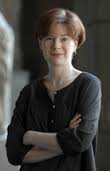
Anne Dunlop
Anne Dunlop is the Herald Chair in Fine Art at the University of Melbourne. She works on medieval and early-modern European art, with particular interests in the materials of art and links between Europe and Eurasia. She has taught in universities in Canada, the UK, the US, and Australia; and she would be pleased to mentor both other art historians and colleagues in other fields.
Back to top of page
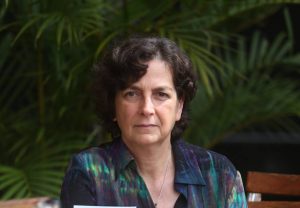
Sarah Ferber
Sarah Ferber is Professor of History at the University of Wollongong. She is an historian of early modern European religion and of modern medicine. Sarah has had extensive experience as a mentor, providing advice to scholars at all levels, in relation to career planning, promotion and preparing of CVs. She is keen to assist emerging scholars as they learn the ropes of ARC applications and rejoinders and job/promotion applications, in particular. Please feel welcome to email her on sferber@uow.edu.au
Back to top of page

Elizabeth Freeman
Dr Elizabeth Freeman is Senior Lecturer in Medieval European History in the School of Humanities at the University of Tasmania. She is a regular participant at ANZAMEMS conferences – she wouldn’t miss the conference for anything! Her teaching includes medieval European history from the early Middle Ages to the late Middle Ages; Renaissance and Reformation history; and Early Modern European history. She is a former Associate Head (Learning and Teaching) for the School of Humanities. She has experience in mentoring applicants for teaching development grants and awards; assessing teaching award applications; and curriculum revision. She also has experience in journal editing, journal article refereeing, monograph proposal refereeing, assessment of national competitive grants, and membership of university job selection panels.
Back to top of page
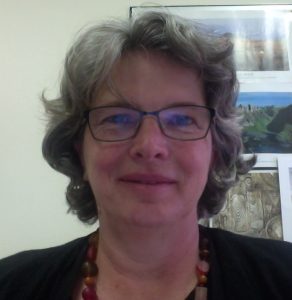
Dianne Hall
Dianne Hall is Associate Professor in History at Victoria University, Melbourne. She has previously worked at Queen’s University, Belfast and held an ARC post-doctoral fellowship at the University of Melbourne. Her research interests include pre-modern Irish history, particularly of gender, religion and violence, as well as histories of the 19th century Irish diaspora. Her book Women and the church in late medieval Ireland (2004, 2008), is the standard work in its field. Her current projects include histories of gender, violence and the Irish from the medieval period to the end of the 19th century, and the history of the Irish in Australia.
Back to top of page
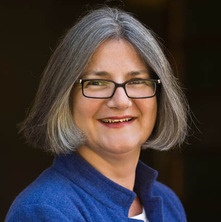
Dolly MacKinnon
Dr Dolly MacKinnon, Honorary Associate Professor in History, The University of Queensland.
Dolly’s research, teaching, and publications, span history, music, and pedagogy. She concentrates on the marginalized and institutionalized by analysing the mental, physical (including material culture) and auditory landscapes. Her service includes directorships of research, engagement and internationalisation, integrity, and the national Athena Swan (SAGE) scheme. Notable recent publications include, ‘Slave Children: Scotland’s Children as chattels at home and abroad in the eighteenth century’, in E. Ewan and J. Nugent (eds.)
Childhood and Youth in Premodern Scotland, St Andrews Studies in Scottish History (2015), ‘‘“Good God Mrs Nicholson”: Slaves and domestic disquiet in eighteenth-century Scotland’, in D. Ellison and A. Leach (eds.) On Discomfort: Moments in a Modern History of Architectural Culture (Routledge, 2017), and ‘The Ceremony of Tolling the Bell at the Time of Death’:Bell-ringing and Mourning in England c.1500–c.1700, in J. W. Davidson & S. Garrido (eds.), Music and Mourning: Interdisciplinary Perspectives (Ashgate, 2016). Her article ‘‘Hearing madness and sounding cures: recovering historical soundscapes of the asylum’, appeared in Politiques de la communication, Hors série 1: Sound Studies. A l’écoute du social, (automne 2017), a Special Issue edited by Professor Philipe Le Guern. She co-edited with Katie Barclay and Di Hall: Children and War in Early Modern Europe for Parergon 38:2 (2021). Dolly’s chapter on ‘War and Conflict’ will appear in vol. 3 of A Cultural History of Youth (Bloomsbury, 2023).
Back to top of page
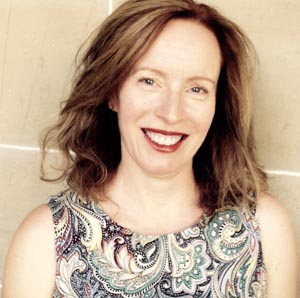
Catherine Mann
Dr Catherine Mann is a senior manager at The University of Melbourne, an Honorary Fellow in Melbourne Centre for the Study of Higher Education, and an Honorary Associate Investigator with the ARC Centre of Excellence for the History of Emotions. She has extensive experience in mentoring and developing scholars, staff and students, both within and beyond the academy, in order for them to achieve their personal, educational and career goals. Catherine holds an interdisciplinary PhD in English and History and her current research interests focus on early modern service, emotional identity and epistolarity alongside experiential learning, skills development and academic advising in international higher education. She leads a team who work with undergraduate, graduate and research higher degree students to recognise, build and articulate their capacity and employability for creative career futures. Catherine also works with staff to enable them to reflect on, define and refine the technical, transferable and translatable skills they extend to their workplace settings.
Back to top of page

Clare Monagle
Clare Monagle is an Associate Professor in Modern History at Macquarie University. Her fields of expertise are medieval intellectual history, as well as the politics of medievalism. In 2013, she published Orthodoxy and Controversy in Twelfth-Century Religious Discourse: Peter Lombard’s Sentences and the Development of Theology. Clare is committed to mentoring junior scholars. At Macquarie, she convenes a scheme for new staff members, in order to provide pastoral support and strategic advice.
Back to top of page

Sam Owens
Samantha Owens is a Professor of Musicology at Victoria University of Wellington, where her research centres on historical performance cultures, in particular early modern German and Irish court music and the reception of German music and musicians in Australasia, 1850–1950. In 2012, Samantha was elected a Fellow of the Australian Academy of the Humanities, and has also held visiting fellowships at the Herzog August Bibliothek in Wolfenbüttel, Germany (2004); Clare Hall, University of Cambridge (2007–2008); and at the Institut für Musik, Martin-Luther-Universität Halle-Wittenberg, Germany, as an Alexander von Humboldt Foundation Research Fellow (2009–2010).
Back to top of page

Kim Phillips
Kim Phillips is Professor of History and Head of School of Humanities at the University of Auckland, where she has taught courses in medieval and Renaissance history, the history of sexuality, and medieval women since 1997. Originally from Melbourne, Kim completed her BA (Hons) at the University of Melbourne (1991) before doing a DPhil at the University of York (1998). Kim is committed to gender, sexual, social, and racial equality, and these beliefs are reflected in her academic teaching and research. Her main publications include Medieval Maidens: Young Women and Gender in England, 1270–1540 (Manchester University Press, 2003), Before Orientalism: Asian Peoples and Cultures in European Travel Writing, 1245–1510 (University of Pennsylvania Press, 2014), and, co-authored with Barry Reay, Sex Before Sexuality: A Premodern History (Polity, 2011). She has been an active member of ANZAMEMS since 1998, including stints as President and New Zealand Vice President.
Back to top of page
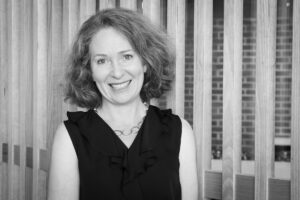 Sarah Ross (Convenor)
Sarah Ross (Convenor)
Sarah Ross is Professor in English at Te Herenga Waka-Victoria University of Wellington, and works in early modern literature, especially women’s writing, poetry, and religious and political writing. She is the author of Women, Poetry, and Politics in Seventeenth-Century Britain (Oxford UP, 2015), and has coedited volumes including The Oxford Handbook of Early Modern Women’s Writing in English, 1540-1700 (2022), Early Modern Women’s Complaint: Gender, Form, and Politics (2020), Women Poets of the English Civil War (2017) and Editing Early Modern Women (2016). She is currently editor of Parergon with Professor Rosalind Smith, and she convened the ANZAMEMS conference in Wellington in 2017.
Back to top of page
 Rosalind Smith (Convenor)
Rosalind Smith (Convenor)
Rosalind Smith is Chair of English and Director of the Centre for Early Modern Studies at ANU. She has published widely on early modern women’s writing, including Sonnets and the English Woman Writer, 1560-1621: The Politics of Gender, the co-edited collections Material Cultures of Early Modern Women’s Writing and Early Modern Women’s Complaint: Gender, Form, and Politics. She is general editor, with Professor Sarah Ross, of Parergon, and, with Professor Trisha Pender, of the Palgrave Encyclopaedia of Early Modern Women’s Writing. Since 2008, she and Pender have convened the Early Modern Women Research Network, bringing together isolated researchers across Australian and New Zealand and linking them to international networks. Since 2024, Smith has coordinated the International Consortium of Centres for Early Modern Studies from CEMS ANU, partnering with the University of Oxford, the London Renaissance Seminar, the Paris Early Modern Seminar and the Irish Renaissance Seminar.
Back to top of page

Jenny Spinks
Jenny Spinks is Hansen Associate Professor in History at the University of Melbourne. She researches polemical print culture, wonders and prodigy culture in northern Europe, and has co-curated exhibitions on early modern apocalyptic and supernatural beliefs. Her publications include Monstrous Births and Visual Culture in Sixteenth-Century Germany (Pickering and Chatto, 2009) and Disaster, Death and the Emotions in the Shadow of the Apocalypse, 1400-1700 (Palgrave, 2016, co-edited with Charles Zika). She is a Chief Investigator on the Australian Research Council Discovery Project ‘Albrecht Dürer’s Material World – in Melbourne, Manchester and Nuremberg’ (https://www.duerersmaterialworld.org/).
Back to top of page
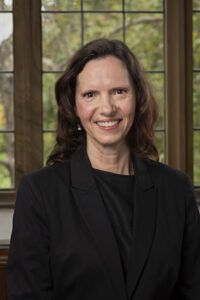
Stephanie Trigg
Stephanie Trigg is Redmond Barry Distinguished Professor of English Literature at the University of Melbourne. Her primary fields are medieval English literature, medievalism, and the history of emotions. Her recent books are Shame and Honor: A Vulgar History of the Order of the Garter (University of Pennsylvania Press, 2012); and with Tom Prendergast, Affective Medievalism: Love, Abjection and Discontent (Manchester University Press, 2020); and 30 Great Myths about Chaucer (Wiley-Blackwell, 2021). She is a Fellow of the Australian Academy of the Humanities, and has received several awards for research, teaching and mentoring. She was Chief Investigator and Program Leader for the Australian Research Council Centre of Excellence for the History of Emotions, and is currently President of the New Chaucer Society (2022–24).
